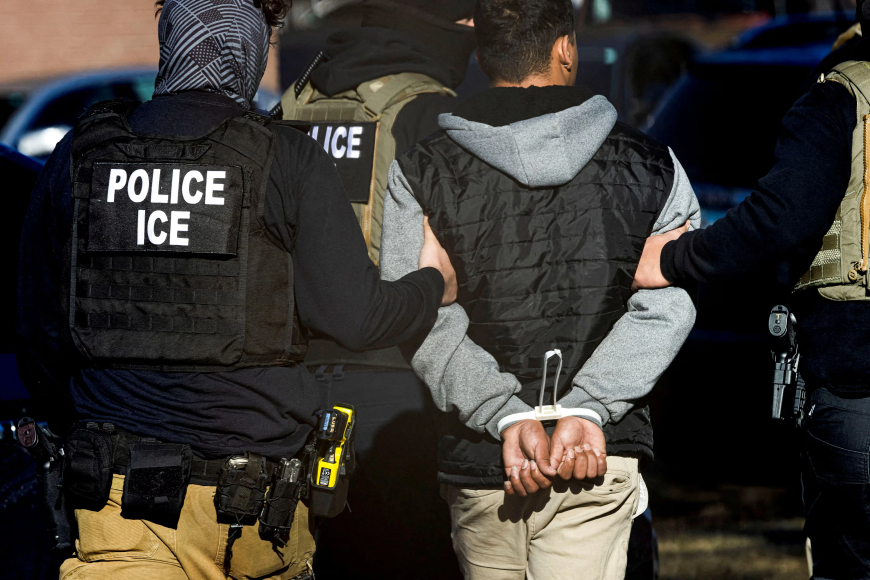Federal Enforcement and Foreign Fallout: ICE Raid Sparks Questions at Home and Abroad
: An ICE raid exposed major gaps between warrants and arrests, raising concerns over enforcement practices and straining U.S.–South Korea relations amid trade and security ties.

“Warrant vs. Reality”: A Raid Under Scrutiny
A recent Immigration and Customs Enforcement (ICE) raid has drawn intense scrutiny after a significant gap emerged between the number of individuals targeted and the number actually taken into custody. Officials confirmed that while warrants were issued for dozens of individuals, only a fraction were ultimately arrested, raising questions about the accuracy of federal enforcement operations and the strain they place on both communities and international relationships.
Critics have labeled the situation a stark example of “warrant vs. reality.” Civil rights advocates argue that such mismatches undermine public trust in immigration enforcement while creating unnecessary fear within immigrant communities.
According to preliminary reports, ICE agents executed the operation across multiple states, with a particular focus on businesses employing foreign nationals. However, the final arrest tally fell well short of expectations, prompting lawmakers to demand an internal review of planning and execution procedures.
Domestic Fallout and Policy Questions
The discrepancy has fueled debate in Washington over whether ICE’s current approach is sustainable. Some lawmakers are calling for reforms to better align warrant targets with actionable intelligence.
“This isn’t just about missed numbers,” said one congressional aide. “Every time there’s a major gap between stated goals and actual results, it raises doubts about whether taxpayer resources are being used effectively.”
Advocacy groups, meanwhile, argue that the raids disproportionately impact law-abiding immigrants and create a chilling effect on communities already navigating a tense political climate.
Diplomatic Fallout with South Korea
The raid has also triggered diplomatic concerns, particularly with South Korea, whose nationals were among those detained. South Korea’s Foreign Ministry has formally requested clarification from U.S. authorities, citing concerns about the treatment of its citizens and the lack of clear communication ahead of the enforcement action.
Analysts warn that the incident could complicate U.S.–South Korea relations, a partnership that spans security cooperation, technology trade, and cultural exchange.
“The U.S. and South Korea rely on each other for everything from military defense to semiconductor production,” explained Dr. Hanna Kim, an expert on East Asian affairs. “When incidents like this occur, they introduce friction into a relationship that Washington cannot afford to destabilize.”
The timing is particularly delicate as both nations are negotiating new agreements related to supply chain security and high-tech manufacturing. Any perception of unfair treatment of South Korean nationals could influence public opinion in Seoul and complicate upcoming trade talks.
Commerce and Strategic Ties at Risk
Beyond diplomacy, there are economic implications. South Korea is a leading partner in the semiconductor and electric vehicle industries, both critical to U.S. economic and national security strategies. A downturn in relations could disrupt ongoing investment plans, including multibillion-dollar projects already underway in states like Texas and Georgia.
According to Reuters, South Korean companies have pledged tens of billions in U.S. manufacturing investments in the past three years. Any cooling of ties could slow this momentum, potentially impacting American jobs and supply chain resilience.
Calls for Accountability and Next Steps
In response to growing criticism, ICE officials have defended the raid as part of their broader enforcement mandate but have acknowledged the challenges of translating warrants into arrests. They argue that targets often move, change employment, or otherwise evade detection by the time operations are executed.
Still, pressure is mounting for greater transparency. Lawmakers from both parties are urging ICE to provide a detailed after-action report, including why so few of the targeted individuals were detained. South Korean diplomats, meanwhile, continue to push for assurances that future enforcement will not unfairly target their citizens.
The Bigger Picture
The raid has become more than a question of enforcement numbers—it has evolved into a litmus test for U.S. credibility abroad. As Washington attempts to reassure allies that it is a reliable partner in both security and commerce, incidents like this can undermine confidence.
Observers say that the outcome of this controversy could shape not only the future of immigration enforcement policy but also the trajectory of America’s most important alliances.
For RFK Jr.’s Health and Human Services team, and for the Biden administration as a whole, the challenge now lies in balancing domestic enforcement priorities with international diplomacy, ensuring that efforts to secure borders do not jeopardize economic and strategic partnerships.



















































